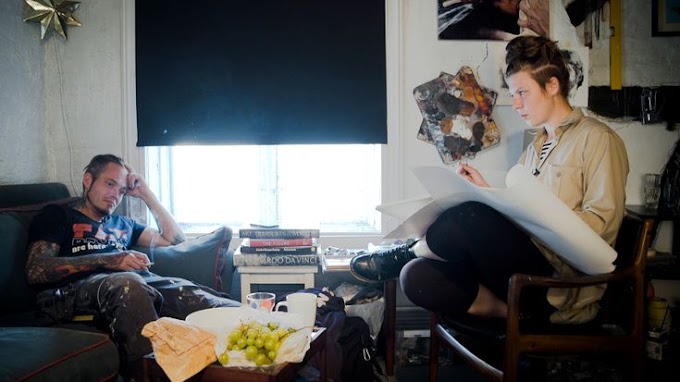Genre: Drama, Sci-fi, Dystopia
Year: 2019
It is quite
rare to see Indian cinema going beyond its comfort zone and make something
extremely breath-taking in terms of concept and script. Netflix is streaming
one such show based on a novel by Prayaag Akbar of the same name, Leila.
It is a beautiful fictional dystopian world set in the near future where the oppressive alt-right
has taken over the land of India which then is known by the name of
Aryavarta. The people in power have segregated the poor people of the lower
caste from the people of the higher caste. A world where it’s a sin and
punishable by law to marry a person from another caste or religion. Women that
dress according to western lifestyle or bear children with someone from lower caste
are stripped off their rights and sent off to the camps where they have to
prove their purity in order to get back to their old life.
This is a
story of Shalini Pathak (Huma Qureshi), a beautiful woman who’s happily married
to a Muslim guy and has a little daughter named Leila. Being a Savarna
woman, she is filthy rich and can afford almost any luxury that the rest of the
Aryavarta can’t. Where the people from the lower caste called Doosh are struggling
to get enough water to drink, Shalini and her husband decide to buy water from the black market to fill up their swimming pool. After getting caught, Shalini is
forced to leave her bubbled life behind when the law raids their house and
arrest her before killing her Muslim husband and taking away her daughter,
Leila.
Now it’s
been two years since Shalini is captivated in the improvement camp and she
finds it meaningless to keep waiting for the release so she decides to make a
break from it in order to find her daughter.
This show
is the journey of Shalini through different aspects of the new Aryavarta system of
governance where she is exposed to the lives of the Doosh that are fighting for
their freedom. It’s an incredible tale of the Resistance fighting for the greater
cause while a mother fights to the cause of getting back her daughter.
While the movie is criticized by the general public to be a political agenda, personally I
haven’t really developed an opinion about it. It has certainly pointed out the
relationships between different caste angles. It has a lot to do with the
history of India than with any political party which I find to be very
intriguing.
There is a whole list of writing details but what I really want to highlight here is the
way they played the caste angle. For example, Shalini asks another woman in the
camp, “Are you here because you married a Muslim man?” to which the woman
defended quickly saying, “No, why would I marry a Muslim man? He was just from
another category.”
It is a reminder that a system where everyone is taught to hate the people put under
the category below them is a system crafted to be ruled upon.
Even though
Shalini is our protagonist, she is fairly accused of not caring about the Doosh
and only caring about her personal cause which is a very detailed virtue of her character which makes her character even more believable.
The writing
of the show is very clever and plots of structured decently. I can’t say that I
have seen any extraordinary acting here but it was good enough to be believable.
Overall it’s decent. The music score is also up to Netflix standard but nothing
overwhelming. The Dolby Digital sound gives you the feel you seek from a
movie. The aspect ratio of the show is 16:9HD which I think is perfect and
should always be like this. They have used Arri Alexa camera with ZEISS Supreme
Prime Lenses allows some really nice visualization experiences. The dystopian
world is very much real in the second episode. I have no major complaints.
It’s
available to stream on Netflix.
My overall
rating:
8.6/10









0 Comments